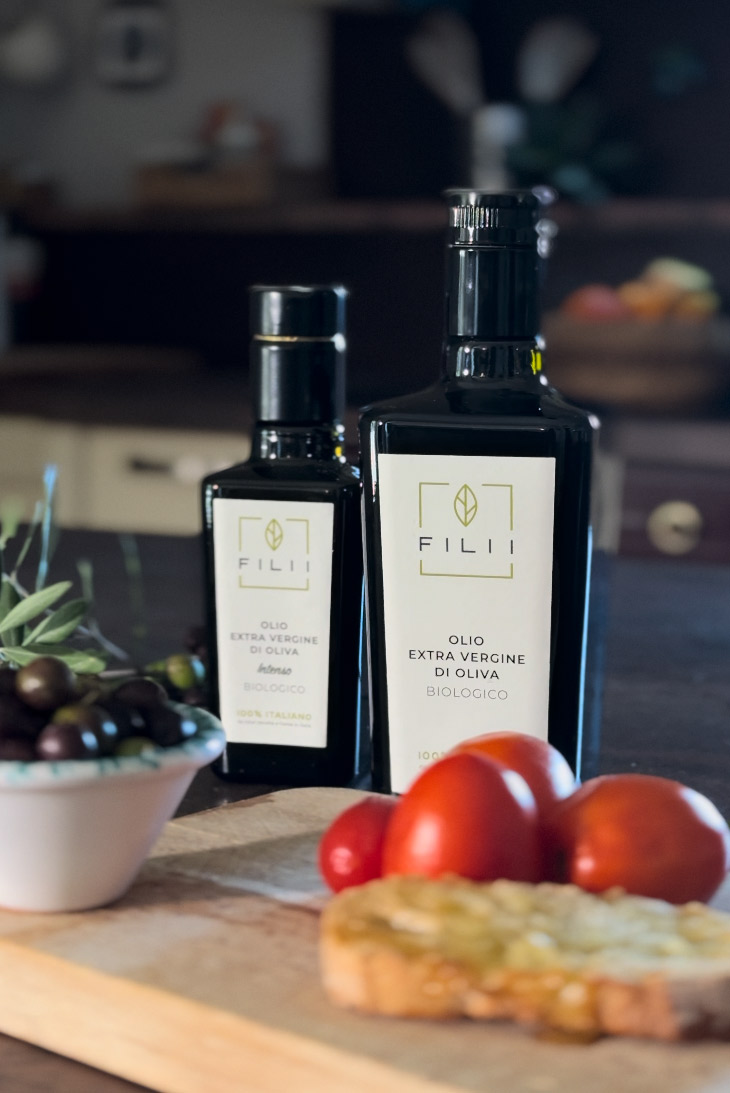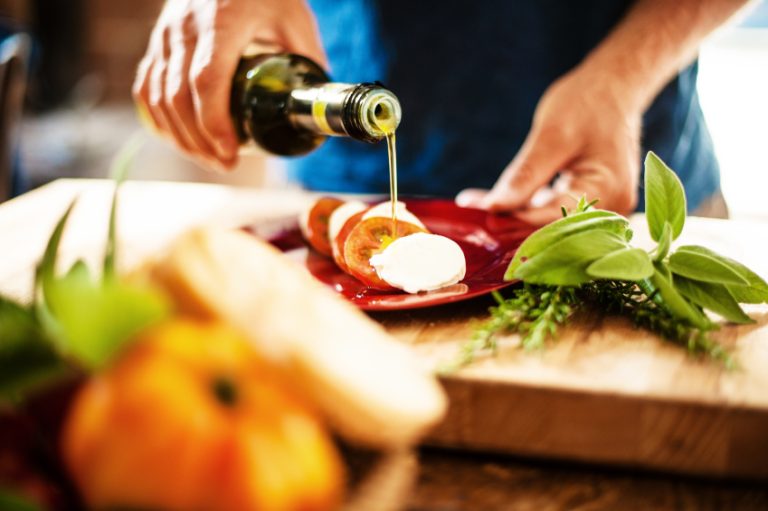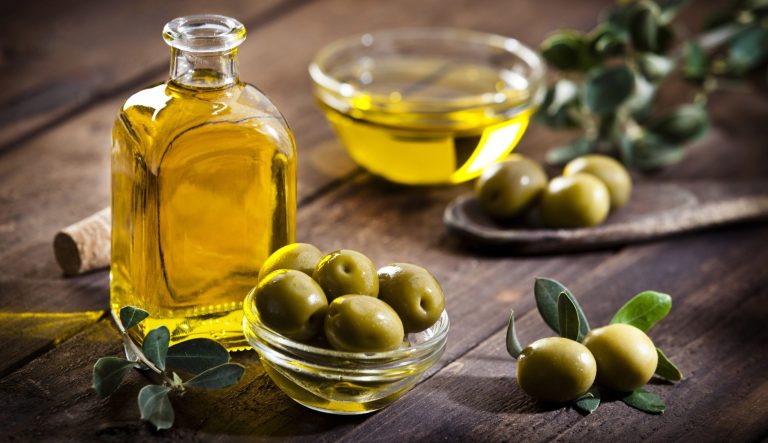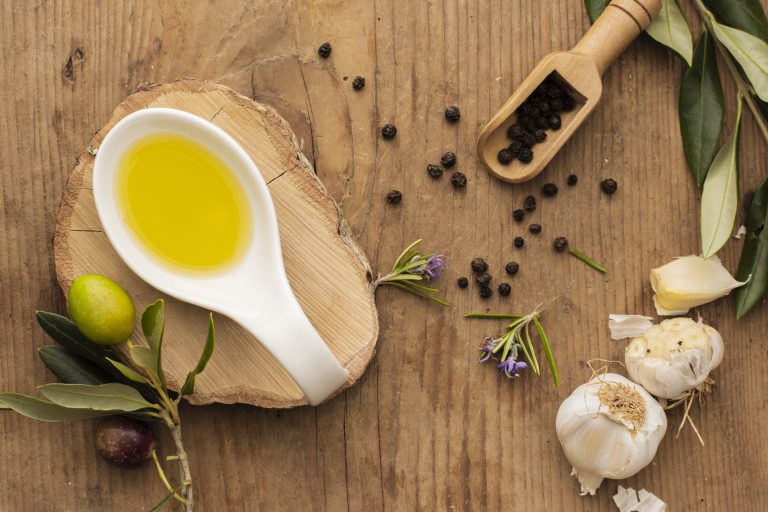
EXTRA VIRGIN OLIVE OIL IN THE KITCHEN: USAGE TIPS AND PAIRINGS
- Post author:Guest-admin
- Post published:March 10, 2025
- Post category:Approfondimenti EN
- Post comments:0 Comments
Extra virgin olive oil is an ingredient that should never be missing from the pantry of anyone who loves to cook. Its abundance of nutrients, combined with its intense and varied flavor, makes it the ideal star of many recipes, ranging from appetizers to desserts. One of the most fascinating aspects of this product is its ability to completely transform the character of a dish, enriching even the simplest recipes. Used raw, for example on a slice of toasted bread or a basic mixed salad, it enhances every single ingredient, balancing flavors with its aromatic notes that can range from fruity to peppery, depending on the variety of olives used.
What is often overlooked is the excellent performance of extra virgin olive oil when cooking. Contrary to popular belief, this product can withstand medium-high temperatures without excessively losing its organoleptic properties, thanks to its relatively high smoke point. It is therefore perfect for sautéing vegetables or preparing sauces, imparting incomparable fragrances to the cooking base. Many chefs also appreciate it for frying, as when used correctly it can yield light and crispy results, provided you keep the oil at a constant temperature and do not exceed its smoke point.
The versatility of extra virgin olive oil is particularly evident in culinary pairings. Its sensory profile pairs well with fish, white meat, and vegetables, especially when you want to highlight the natural flavors of the ingredients without overwhelming them. By choosing the right cultivar, you can play with different taste nuances: a more delicate oil will enhance the sweetness of a baked sea bream, while a robust, peppery EVOO may go well with red meat or legume soups. It is also worth experimenting with extra virgin olive oil in desserts, for instance in certain cake recipes where it can brilliantly replace butter, offering an unexpected fragrance.
To best preserve extra virgin olive oil, store it in tightly sealed containers, ideally made of dark glass or stainless steel, in a cool place away from direct light. Heat and exposure to oxygen can damage its quality, altering its flavor and causing it to lose its valuable nutritional properties. Pay close attention to consumption times as well: although a good extra virgin olive oil can keep for several months, it’s best to use it within a year of pressing to fully appreciate its aromatic profile.
In short, extra virgin olive oil is a true treasure for cooking enthusiasts due to its extreme versatility and numerous health benefits. Knowing how to choose it, storing it properly, and experimenting with unusual pairings allows you to enrich the table with tasty and always new dishes. Far from being just a simple condiment, it becomes a real protagonist, able to turn the preparation of a meal into a genuine sensory journey discovering the authentic and traditional flavors of the Mediterranean diet.






